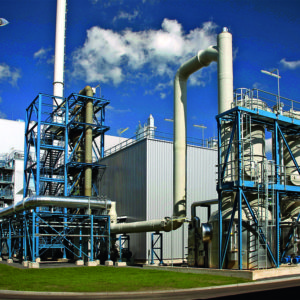-
Saudi Arabia pushes for more emphasis on carbon capture in IPCC Synthesis Report
Date posted:
-
-
-
Post Author
Patrick LaveryCombustion Industry News Editor
-

The Financial Times has drawn attention to the efforts of a number of fossil fuel producing countries to give carbon capture additional prominence in the Intergovernmental Panel on Climate Change’s Synthesis Report of its Sixth Assessment Report.
Saudi Arabian representatives at intergovernmental negotiations pushed for an emphasis on the use of technologies to remove carbon dioxide from the atmosphere, and this caused consternation on the part of other participants who wanted emphasis instead to be placed on reducing emissions in the first place. Carbon capture was reportedly seen as “unproven” to such delegates, although it is possible others simply saw it as more prudent to emphasise lowering the production of greenhouse gases in the first place.
Although the Financial Times report is correct in writing that the Synthesis Report includes the statements “Implementation of CCS currently faces technological, economic, institutional, ecological, environmental and sociocultural barriers. Currently, global rates of CCS deployment are far below those in modelled pathways limiting global warming to 1.5C to 2C”- there is more to this footnote. The full footnote reads:
“CCS is an option to reduce emissions from large-scale fossil-based energy and industry sources provided geological storage is available. When CO2 is captured directly from the atmosphere (DACCS), or from biomass (BECCS), CCS provides the storage component of these [carbon dioxide removal] methods. CO2 capture and subsurface injection is a mature technology for gas processing and enhanced oil recovery. In contrast to the oil and gas sector, CCS is less mature in the power sector, as well as in cement and chemicals production, where it is a critical mitigation option. The technical geological storage capacity is estimated to be on the order of 1000 GtCO2, which is more than the CO2 storage requirements through 2100 to limit global warming to 1.5°C, although the regional availability of geological storage could be a limiting factor. If the geological storage site is appropriately selected and managed, it is estimated that the CO2 can be permanently isolated from the atmosphere. Implementation of CCS currently faces technological, economic, institutional, ecological, environmental and socio-cultural barriers. Currently, global rates of CCS deployment are far below those in modelled pathways limiting global warming to 1.5°C to 2°C. Enabling conditions such as policy instruments, greater public support and technological innovation could reduce these barriers. (high confidence)”
The FT does not make clear which other countries pushed for greater emphasis on CCS, though it details that the United Arab Emirates, which hosts COP28 later this year, “was not particularly vocal”.
You may also like
-
-
30th September 2019
-
